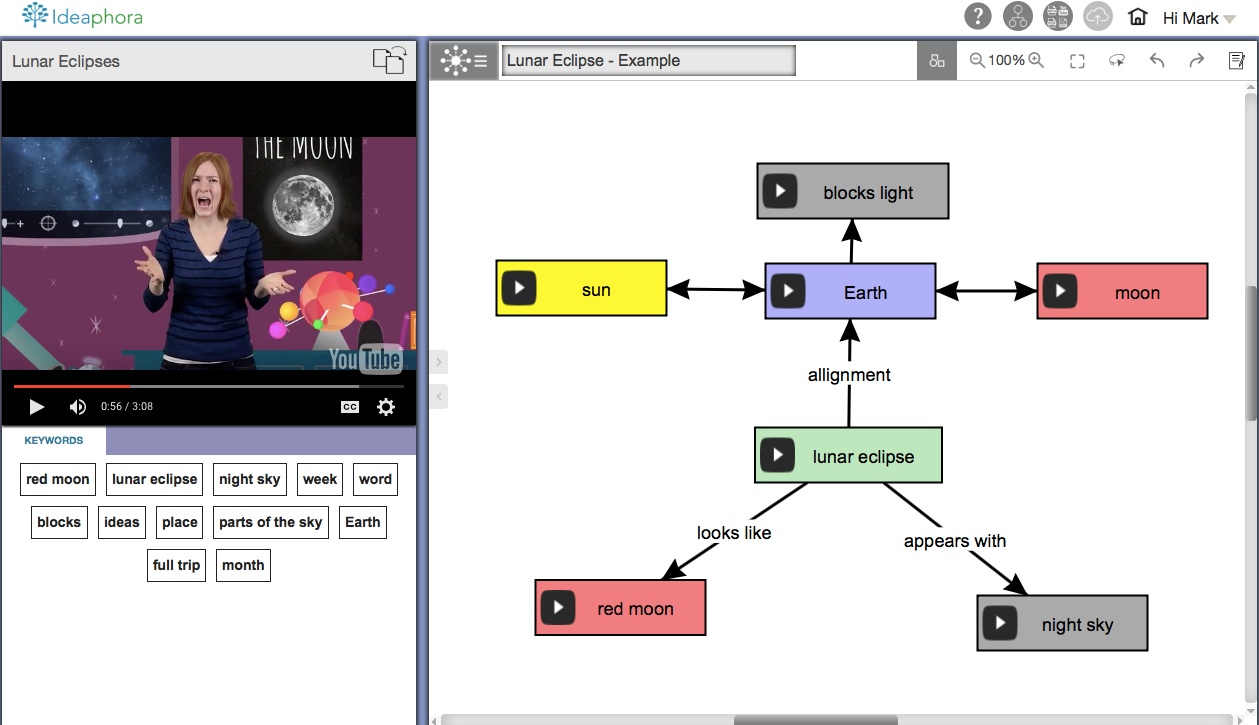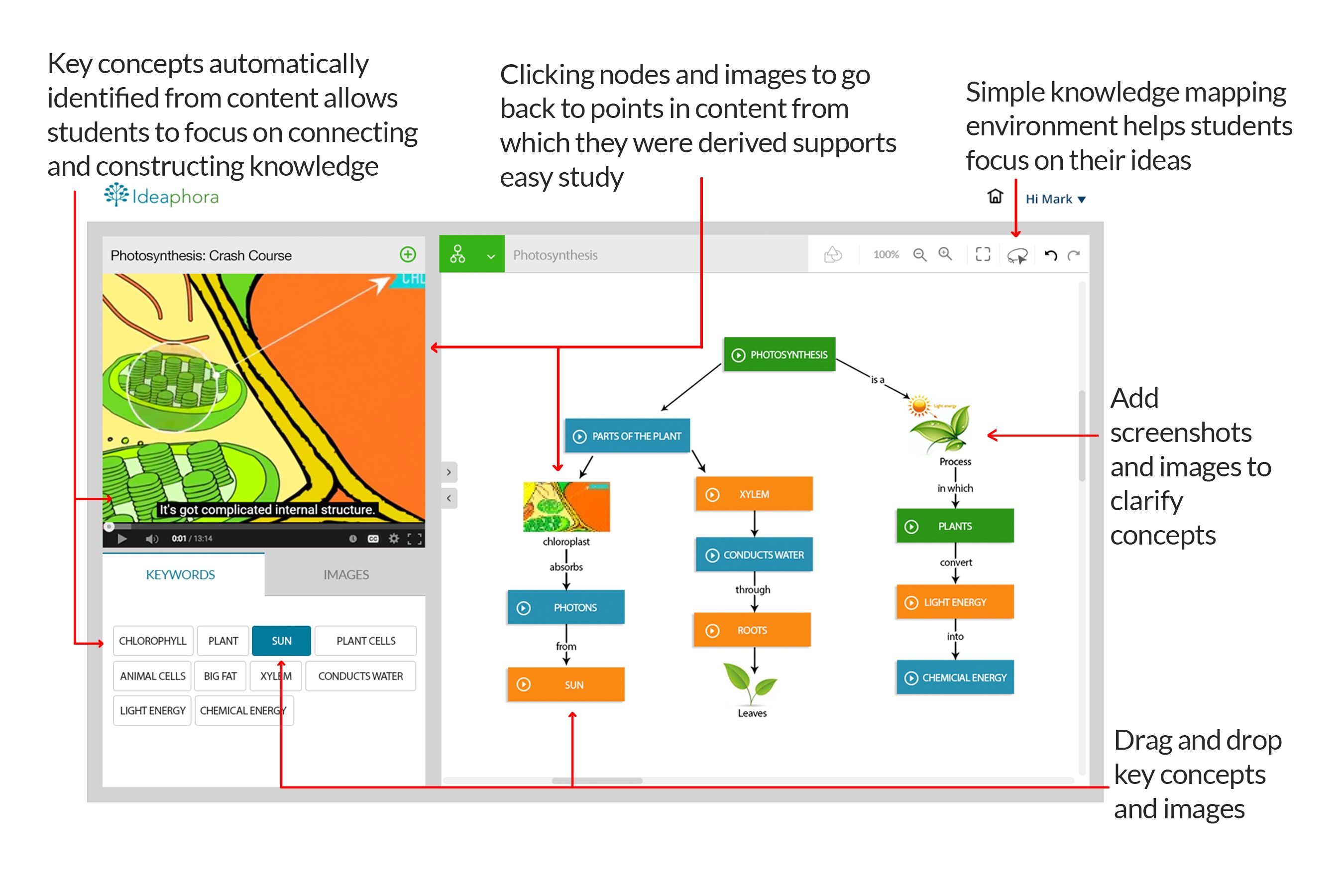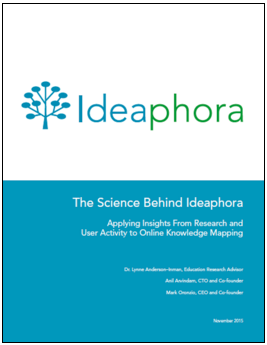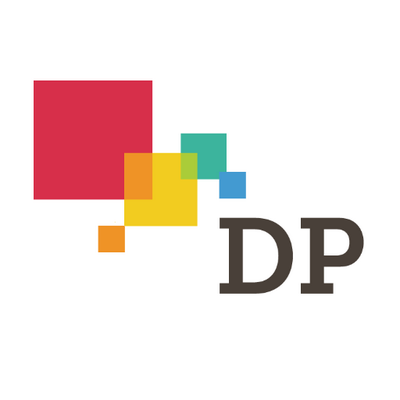At the Content in Context Conference in June this year, Judson Wagner, Supervisor of STEM, CTE, and Instructional Technology at Brandywine School District in Delaware, explained that his hope for the future of education technology was to provide solutions that enable educators to make students' thinking visible. He expounded that he was seeking ways to evaluate when and how student engagement is translating into learning.
Peek Inside Ideaphora's Technology
SEMANTIC ANALYSIS AND HOW IT WORKS
Ideaphora is the only knowledge mapping tool that integrates with digital content, enabling users to directly grab concepts from online materials and place them into their maps. Learners don’t have to fumble with toggling among multiple screens, cutting and pasting, or generating nodes and text themselves.
The Ideaphora web-based knowledge-mapping environment uses semantic analysis to identify key concepts in online content, such as videos, eBooks, PDFs, and webpages. These key concepts are presented to learners and are easily accessed through a drag-and-drop interface to enable them to construct knowledge maps. Ideaphora’s semantic analysis process continually identifies, presents and refines key concepts in the knowledge-mapping environment.
A Perfect Match: Ideaphora and OER
Open education resources (OER) have the potential to increase educator and student access to high-quality learning materials, no matter where they live or what school they are from, as well as help schools reduce costs as they transition to digital learning. The U.S. Department of Education has launched the #GoOpen campaign to encourage more districts, schools and educators to use openly licensed education resources. However, to truly maximize the potential of OER, students need to have opportunites to engage with those materials in ways that deepen their understanding of curriculum concepts and develop their critical thinking skills.
Ideaphora CEO Interviewed in Assistive Tek Times
Mark Oronzio, CEO and co-founder of Ideaphora, was interviewed by Brian Friendlander of Assistive Tek Times. Brian is a professor at the College of St. Elizabeth, a blogger, and an ed tech consultant who specializes in training educators in how to use mind mapping and assistive technology to address the needs of a diverse range of learners. Mark shared how Ideaphora began when industry colleagues introduced him to his co-founder, Anil Arvindam, an opportune meeting that brought together reknowned experts in their respective fields. He further explained how the Ideaphora web-based knowledge mapping environment supports educators in developing students' higher order thinking skills and deepening their understanding of curriculum concepts.
Learn about The Science Behind Ideaphora
Faced with ever-evolving challenges, schools are looking for sound, research-based products that will help them meet their learning objectives. Ideaphora is not only filling an urgent need for a tool that enables students to seamlessly build knowledge maps with digital content, it’s also supported by a rigorous research basis and a continuous improvement process.
Ideaphora Highlighted in Digital Promise Report
Digital Promise has released a new report, “Using Research in Ed Tech,” that shares promising practices, quotes, and examples from 38 developers. Ideaphora was among the companies highlighted that are using research to design and develop educational technology products. By showcasing examples of research-based product development, Digital Promise aims to help researchers, developers and educators collaborate to use scientific and user research to improve student outcomes and better understand learners.
Join Us in Revitalizing Knowledge Mapping for the Digital Age
Our private beta is live! And educators from across the country and the globe have the opportunity to help us fine tune our tool to be a catalyst for deeper learning and a pathway to preparing learners with the skills they need for success in school and beyond.






